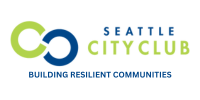Who was the first (or one of the first) family members to become a U.S. citizen?
My 5 siblings and I are first-generation born Americans. My mother, Elvira González, was the first in my family to become a citizen.
Where did they immigrate from?
My mother and father immigrated from Michoacán, Mexico in the early 1960s.
What did they do to earn a living once they arrived in the U.S.?
When my parents arrived in the U.S., they worked as migrant farmworkers in the lower Yakima Valley and continued that work for most of their lives. When I was 8 years old, I joined them and my older siblings in the fields and we worked as a family to earn enough to get by.
Did they have family members already in the U.S. or were they the first in their family to immigrate?
My mother had a limited amount of family already living in the U.S. Her sister lived in Los Angeles and she had cousins living in Wapato, Washington, in Central Washington. My father was the first in his family to permanently immigrate to the U.S. but his grandfather lived in the U.S. for a short period of time during the “bracero” program, which was instated in 1942.
What were their struggles?
My parents’ immigration story is a typical immigrant story. They came to the U.S. in their mid-20s with no grasp of the English language, no formal education and no formal work training. My parents were also undocumented immigrants until they adjusted their status several years after arriving in this country. Their arrival to Central Washington was greeted by signs saying: “No Dogs or Mexicans Allowed” and finding basic, culturally appropriate food was a challenge. Store bought tortillas were not prevalent and neither was the masa mix required to make homemade corn tortillas. They experienced a significant amount of racism and isolation as a result of moving to rural Washington which was, at the time, primarily Anglo. My parents were left with the only option of working low-wage, manual jobs that did not offer vacation, sick days or health insurance. As a result, my mother often comments that she would return to work in the fields of Central Washington within a week of giving birth. Although my parents experienced profound poverty, their resilience was evident and they worked diligently to save money to buy a home and ensure that we always had what we needed.
What were their successes?
I think my parents would say that their greatest success are their six children. While we were not wealthy, they took pride in being able to provide us with opportunities that would not have been available to us had they started a family in Mexico. In America, public education through 12th grade was free and college was a reality through need-based grants and scholarships. There was always food on the table and they worked hard to buy a home to keep us warm and safe. I owe all of my success and happiness to them. Without their sacrifice, support and investment, I would not be where I am today.
What is your favorite story about them or another ancestor?
My parents often told stories about what it was like to live in rural Mexico. My mother, in particular, tells stories about not having a car and not having seen a car until she was in her early 20s! Needless to say, she knows exactly how long it takes to get from her old village to the nearest town by mule. I think the reason these stories are my favorite because it highlights not only the struggle of growing up in rural Mexico but also the simplicity of growing up with just the essentials but surrounded by family and friends.
What family traditions did your ancestors pass down to you?
Growing up in America to recently immigrated Mexican parents was at times difficult and confusing. Many of my family traditions are rooted in this concept of bi-culturism and Latinoism identity. My parents felt very strongly that our heritage would be prominent in our upbringing, even in a period where there was significant societal pressure to assimilate their children. As a result, I learned Spanish first and English second and we always spoke Spanish at home and to our elders. English was reserved for school and amongst siblings, cousins and friends. We also celebrated both American and Mexican national holidays. For example, my mother always had two mother’s days: American mother’s day and Mexican mother’s day, which is always celebrated on May 10. Today, as an adult, I cherish the fact that my parents were undeterred in their quest to ensure that we grew up as both Americans and Latinos.
How does your family celebrate holidays like Flag Day, July 4th and Veterans Day?
We celebrate holidays here like most other American families. We barbeque (though its carne asada plus burgers and hot dogs), we watch fireworks and we acknowledge the sacrifices of those who came before us.
What is one way Seattleites can help new citizens feel welcome?
I think there are several ways Seattleites can help New Americans feel welcome. First and foremost, just be kind – to everyone! It’s not hard and it doesn’t take much. Secondly, support organizations like Goodwill, Casa Latina, Asian Counseling & Referral Services, OneAmerica and El Centro de la Raza. These organizations engage in policy advocacy that benefits New Americans but also provide much needed direct services to New Americans. Third, learn about the issues that impact New Americans in our community. You can visit the City’s Office of Immigrant and Refugee Affairs and sign up for their newsletter and read through their reports about the State of Immigrants and Refugees in our City and region. Lastly, get out of your comfort zone. Visit a shop selling Mexican art. Go to a parade in South Park. Take your kids out
for Ethiopian food. Seattle is a diverse place, revel in it!
